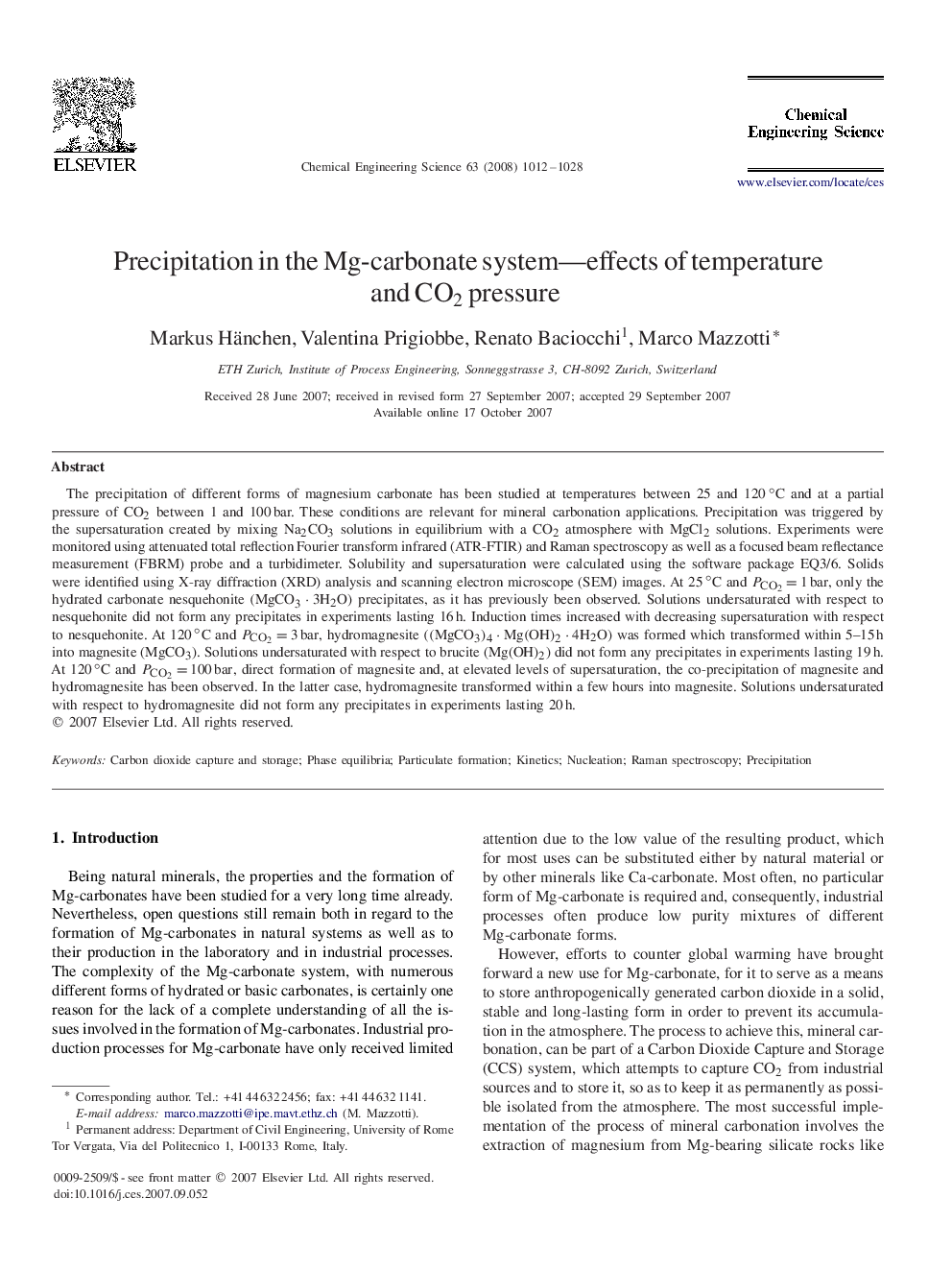| کد مقاله | کد نشریه | سال انتشار | مقاله انگلیسی | نسخه تمام متن |
|---|---|---|---|---|
| 158470 | 457009 | 2008 | 17 صفحه PDF | دانلود رایگان |

The precipitation of different forms of magnesium carbonate has been studied at temperatures between 25 and 120∘C and at a partial pressure of CO2 between 1 and 100 bar. These conditions are relevant for mineral carbonation applications. Precipitation was triggered by the supersaturation created by mixing Na2CO3 solutions in equilibrium with a CO2 atmosphere with MgCl2 solutions. Experiments were monitored using attenuated total reflection Fourier transform infrared (ATR-FTIR) and Raman spectroscopy as well as a focused beam reflectance measurement (FBRM) probe and a turbidimeter. Solubility and supersaturation were calculated using the software package EQ3/6. Solids were identified using X-ray diffraction (XRD) analysis and scanning electron microscope (SEM) images. At 25∘C and PCO2=1bar, only the hydrated carbonate nesquehonite (MgCO3·3H2O)(MgCO3·3H2O) precipitates, as it has previously been observed. Solutions undersaturated with respect to nesquehonite did not form any precipitates in experiments lasting 16 h. Induction times increased with decreasing supersaturation with respect to nesquehonite. At 120∘C and PCO2=3bar, hydromagnesite ((MgCO3)4·Mg(OH)2·4H2O)((MgCO3)4·Mg(OH)2·4H2O) was formed which transformed within 5–15 h into magnesite (MgCO3). Solutions undersaturated with respect to brucite (Mg(OH)2) did not form any precipitates in experiments lasting 19 h. At 120∘C and PCO2=100bar, direct formation of magnesite and, at elevated levels of supersaturation, the co-precipitation of magnesite and hydromagnesite has been observed. In the latter case, hydromagnesite transformed within a few hours into magnesite. Solutions undersaturated with respect to hydromagnesite did not form any precipitates in experiments lasting 20 h.
Journal: Chemical Engineering Science - Volume 63, Issue 4, February 2008, Pages 1012–1028